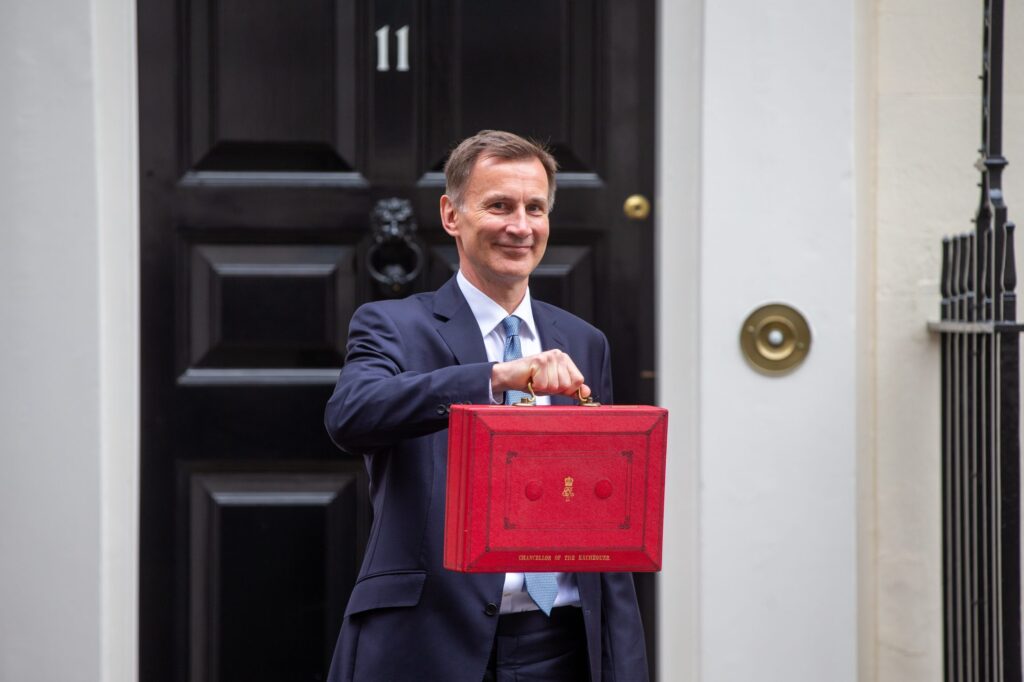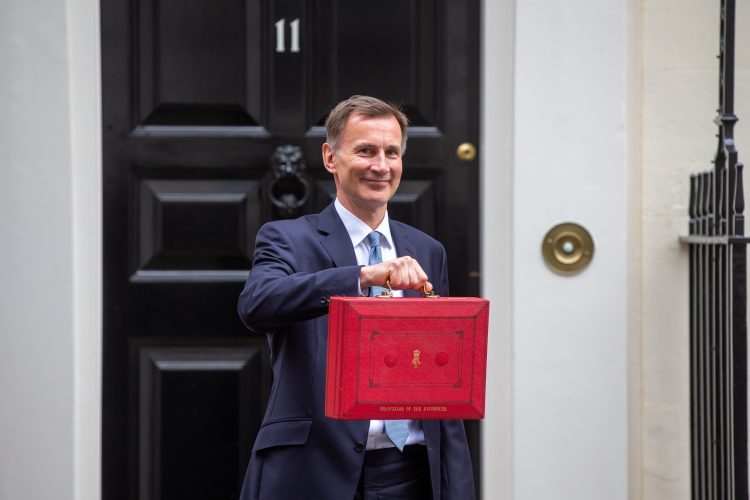Food and beverage industry reacts to underwhelming Spring Budget

Jeremy Hunt has announced the Spring Budget for 2024. Here New Food shares how the sector has responded and why some believe it is a “missed opportunity”.

The first week of March marks an important moment in the UK economic calendar: the announcement of the Spring Budget. It’s a chance for the Chancellor of the Exchequer to adjust economic policy, raise or cut taxes and aid business and industry. It’s said that it’s impossible to please everybody. Never has this axiom been truer when it comes to the Spring Budget, but how did the food and beverage industry react?
Cost of living battle rages on
Undoubtedly the biggest economic story of the past year (or years) in the UK has been inflation and its impact on the cost of living for households across the country. Food has been intrinsically linked with the cost of living crisis too, with food inflation only just falling to the levels of March 2022 after record highs. Not only is food costing more, but there are also less pounds in the nation’s pocket to spend on luxury food and drink items.
In response, Chancellor Jeremy Hunt announced a further two percent cut in National Insurance, meaning its drops from 10 percent to eight percent. This will save between £25 to £125 for working Britons (though frozen tax thresholds could mean an overall drop in take-home pay).
What’s more, the freeze on alcohol and fuel duty has continued, in a bid to save families and businesses money in a tough economic climate.
Despite this modest, but not insignificant giveaway, the food and beverage industry’s reaction has been mixed.
“The cost of living crisis has taken a toll on businesses and households. Consumer confidence remains low and retail sales volumes in 2023 were the lowest in four years. Yet the Chancellor has done little to promote growth and investment, instead hindering it with the business rates rise in April. This has consequences for jobs and local communities everywhere – from the smallest villages to the biggest cities,” said Helen Dickinson, Chief Executive of the British Retail Consortium.
“The cut to national insurance might go some way to supporting households impacted by the high cost of living. However, unless Government addresses the government imposed cost increases, we may yet see the spectre of higher inflation return, limiting the benefits to households of lower national insurance.”
Food and Drink Federation (FDF) CEO Karen Betts also offered a lukewarm response: “It’s great to see the Chancellor’s acknowledgement of the impact of inflation on households with his cut to National Insurance. In parallel, the food and drink manufacturing sector continues to keep prices as low as possible, conscious that many families’ budgets are now close to breaking point.
“But the costs of recent turbulence to our sector are real, and are illustrated in stark terms by a steep fall in investment in food and drink manufacturing, which declined by a third last year compared to 2019.
“Our country needs a strong food and drink sector – which underpins our food security, as well as hundreds of thousands of jobs and forward-looking science and innovation. For this we need joined-up, constructive government policies to shore up our strength and to create the conditions for investment. This was in short supply in this Budget. Instead, our sector is still held back by a muddle of poor regulation – the latest example of which is ‘Not for EU’ labelling, which will have a chilling effect on investment and exports while tying UK food labelling once again to EU rules.”
A missed opportunity for farmers?
One corner of the food industry which seems to experience ever tougher times is the agricultural sector. The National Farmers’ Union (NFU) had called for “clarity” to the current system of tax treatment of agricultural land in environmental management schemes (ELMs), as well as more security when it comes to agricultural budgets into the future.
“We welcome the government backing the NFU’s call for the extension of APR to land in Environmental Land Management schemes as it will remove a barrier of entry for a number of farm businesses and give farmers more choice about how to use their land,” said recently appointed NFU President Tom Bradshaw.
“But the extension of this beyond ELMs may have an adverse impact on food production and farm tenancies and we will work with Treasury to assess those implications.”
Bradshaw’s overall assessment of the Spring Budget was again mixed: “Where some of the headline announcements, such as an extension to agricultural property relief and a reduction of National Insurance for the self-employed, could offer some benefits to agricultural businesses, the Chancellor has missed an opportunity to deliver resilience for food producers,” he added.
There is a theme developing. Some of the announcements in the House of Commons did grab headlines and could encourage UK consumers to spend a little more on food and drink, both in and outside of home settings. Some commentators have noted the lack of a “rabbit” in this budget – the idea that Chancellors in years past have had unannounced policies up their sleeve to reveal, or rabbits to pull out of hats. Hunt said what he was expected to say, but it seems to have left the food and beverage industry unsatisfied and wanting a little bit more.
Source: newfoodmagazine.com

